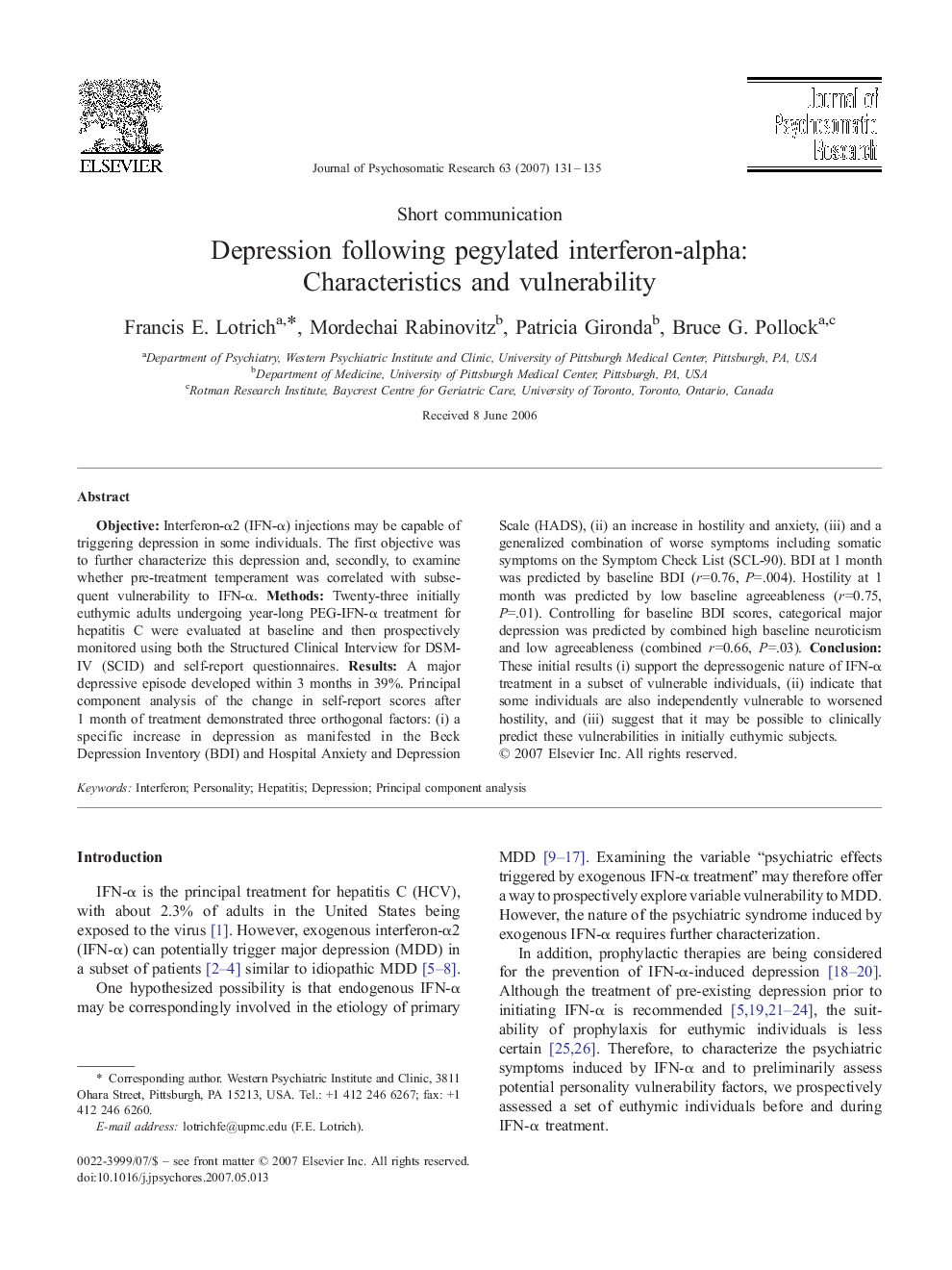| Article ID | Journal | Published Year | Pages | File Type |
|---|---|---|---|---|
| 950786 | Journal of Psychosomatic Research | 2007 | 5 Pages |
ObjectiveInterferon-α2 (IFN-α) injections may be capable of triggering depression in some individuals. The first objective was to further characterize this depression and, secondly, to examine whether pre-treatment temperament was correlated with subsequent vulnerability to IFN-α.MethodsTwenty-three initially euthymic adults undergoing year-long PEG-IFN-α treatment for hepatitis C were evaluated at baseline and then prospectively monitored using both the Structured Clinical Interview for DSM-IV (SCID) and self-report questionnaires.ResultsA major depressive episode developed within 3 months in 39%. Principal component analysis of the change in self-report scores after 1 month of treatment demonstrated three orthogonal factors: (i) a specific increase in depression as manifested in the Beck Depression Inventory (BDI) and Hospital Anxiety and Depression Scale (HADS), (ii) an increase in hostility and anxiety, (iii) and a generalized combination of worse symptoms including somatic symptoms on the Symptom Check List (SCL-90). BDI at 1 month was predicted by baseline BDI (r=0.76, P=.004). Hostility at 1 month was predicted by low baseline agreeableness (r=0.75, P=.01). Controlling for baseline BDI scores, categorical major depression was predicted by combined high baseline neuroticism and low agreeableness (combined r=0.66, P=.03).ConclusionThese initial results (i) support the depressogenic nature of IFN-α treatment in a subset of vulnerable individuals, (ii) indicate that some individuals are also independently vulnerable to worsened hostility, and (iii) suggest that it may be possible to clinically predict these vulnerabilities in initially euthymic subjects.
